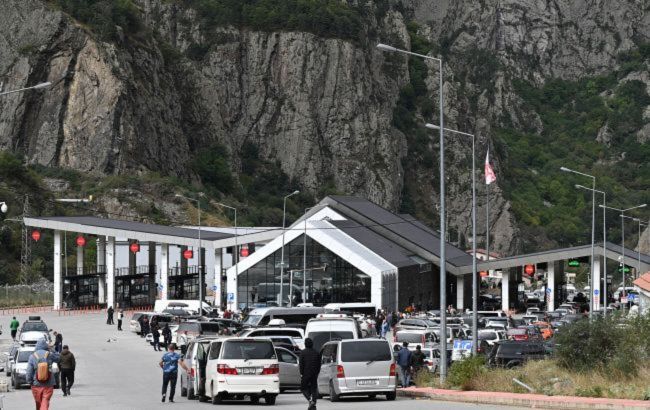Georgian government to expand housing zone for Ukrainians stranded at Russian border
 Illustrative photo: checkpoint at the Russia–Georgia border in Verkhni Lars (Getty Images)
Illustrative photo: checkpoint at the Russia–Georgia border in Verkhni Lars (Getty Images)
Georgian law enforcement authorities plan to expand the housing area at the Dariali checkpoint, where deported Ukrainians, denied entry into the country, are currently staying, according to Echo of the Caucasus.
In an official statement, Georgia’s Border Police under the Ministry of Internal Affairs said that the Dariali checkpoint is currently the only functioning crossing where cases of people arriving from Russian territory have increased.
These individuals attempt to enter Georgia using invalid documents, claiming to be Ukrainians who allegedly served criminal sentences in the temporarily occupied territories of Ukraine. In most cases, they had already served prison terms in Russian penal colonies after being forcibly transferred there.
Following the completion of their sentences, Russian authorities carry out so-called "deportations" of such individuals through the Dariali crossing on the Russia–Georgia border.
According to Georgian human rights activists and the Ukrainians currently held at the checkpoint, the conditions remain extremely poor—there is no adequate access to medical care or food. In the basement area, there aren’t enough sleeping spaces, forcing people to rest in shifts.
The estimated cost of expanding the living space at Dariali is 299,990 lari (around 4.6 million UAH).
According to Ukrainian human rights advocates, the rise in deportations is linked to a decree issued by Russian President Vladimir Putin requiring Ukrainian citizens to either legalize their stay in Russia by September 10, 2025, or leave the country.
Advocates warn that the number of deported Ukrainians is likely to grow significantly as this deadline approaches.
Ukrainian Foreign Minister Andrii Sybiha urged Russia not to deport Ukrainian citizens to the Georgian border, but instead to repatriate them directly to Ukraine’s border.
In the meantime, Georgian authorities have proposed that Ukraine repatriate its formerly convicted citizens directly from the crossing points.

